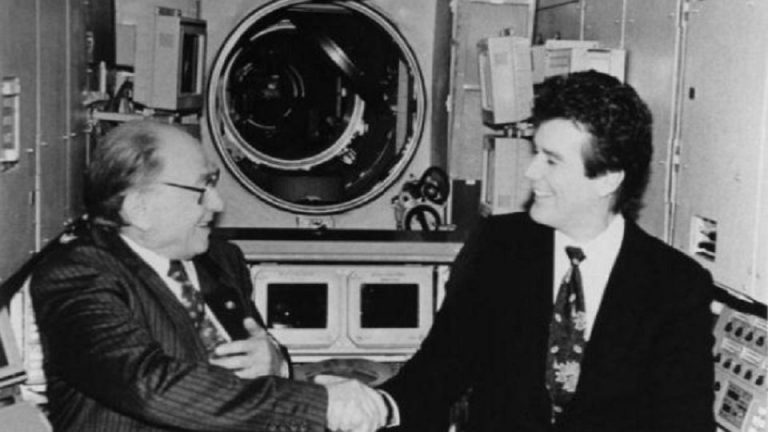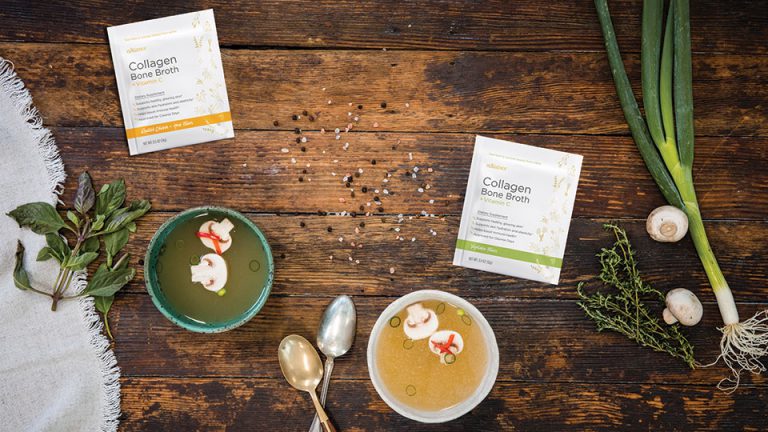Why Your Diet Has the Biggest Influence on Your Microbiome
Many factors influence the makeup of your microbiome, such as your age, environment, and physical activity level, but the single greatest influence is the food you eat.
Your digestive system is home to a complex community of microbes called your “microbiome.” These tiny microbes have a tremendous influence on our health, and scientific research continues to reveal new, surprising ways that our microbiome can affect our well-being.
Just as your resident microbes have an important influence on you, you have a strong influence on your microbes.
Eating for Trillions
The food you eat greatly affects the type of microbes that live inside your gut. This is because you are feeding not only yourself every time you sit down for a meal but also your resident microbes.
Your body digests and absorbs nutrients from the foods you eat, but there are components in food your body cannot digest. When those remaining substances travel through your digestive system to your large intestine, they become fuel for the microbes that live there.
These microbes use the materials you can’t digest to support their own needs and yours. For example, intestinal microbes help produce and absorb certain vitamins (1). They create substances such as short-chain fatty acids that promote the health of your intestinal cells but also prevent the growth of disease-causing bacteria in your digestive system (2).
Your Microbiome Fits Your Diet
The different types of microbes that make up your microbiome each require different nutrients for growth. Because different foods provide different mixes of nutrients, your diet determines which types of microbes thrive and fail.
Some differences are specific to certain types of food. Because sea vegetables, such as nori, dulse, or kombu, are a daily part of traditional diets in Japan, individuals in these communities have beneficial bacteria in their intestinal microbiome not found in Western populations that are specialized in breaking down fiber from sea vegetables (3).
Other differences reflect broader dietary patterns like consuming a vegetarian diet versus a conventional diet including meat. A diet that is higher in fat and protein from animal-based foods creates a distinct profile compared to a diet that is higher in fiber and other carbohydrates from plant-based foods (4, 5).
Foods to Nourish Your Microbiome
Regardless of what type of diet you consume, there are foods that should be on everyone’s menu. Plant-based foods such as fruit, vegetables, legumes, and whole grains provide a rich source of fiber that has important benefits for your intestinal microbiome. These benefits include support for the growth of beneficial microbes, which increases the production of short-chain fatty acids and other substances (6). Low-fiber diets, on the other hand, are linked to poor digestive health and overall well-being (7).
There are many factors that can influence your microbiome, such as your age, environment, and even physical activity level. However, the single factor with the greatest influence on the health of your microbiome is also one of the factors that you have the greatest ability to control: your diet. Whether you choose a vegetarian or conventional diet, consuming more fiber-rich, plant-based foods can benefit your health and support a thriving, healthy microbiome, too.
To find out the latest information on digestive health innovation, click here.
References
- LeBlanc JG, Chain F, Martín R, Bermúdez-Humarán LG, Courau S, Langella P. Beneficial effects on host energy metabolism of short-chain fatty acids and vitamins produced by commensal and probiotic bacteria. Microb Cell Fact. 2017 May 8;16(1):79. doi: 10.1186/s12934-017-0691-z.
- Sun Y, O’Riordan MX. Regulation of bacterial pathogenesis by intestinal short-chain Fatty acids. Adv Appl Microbiol. 2013;85:93-118. doi:10.1016/B978-0-12-407672-3.00003-4.
- Hehemann JH, Correc G, Barbeyron T, Helbert W, Czjzek M, Michel G. Transfer of carbohydrate-active enzymes from marine bacteria to Japanese gut microbiota. Nature. 2010 Apr 8;464(7290):908-12. doi: 10.1 Scientific research continues to identify patterns in the identifying the effects of different diets on the diversity and makeup of an individual’s microbiome. 038/nature08937.
- Zimmer J, Lange B, Frick JS, Sauer H, Zimmermann K, Schwiertz A, Rusch K, Klosterhalfen S, Enck P. A vegan or vegetarian diet substantially alters the human colonic faecal microbiota. Eur J Clin Nutr. 2012 Jan;66(1):53-60. doi:10.1038/ejcn.2011.141.
- Wu GD, Chen J, Hoffmann C, Bittinger K, Chen YY, Keilbaugh SA, Bewtra M, Knights D, Walters WA, Knight R, Sinha R, Gilroy E, Gupta K, Baldassano R, Nessel L, Li H, Bushman FD, Lewis JD. Linking long-term dietary patterns with gut microbial enterotypes. Science. 2011 Oct 7;334(6052):105-8. doi:10.1126/science.1208344.
- Holscher HD. Dietary fiber and prebiotics and the gastrointestinal microbiota. Gut Microbes. 2017 Mar 4;8(2):172-184. doi: 10.1080/19490976.2017.1290756.
- Desai MS, Seekatz AM, Koropatkin NM, Kamada N, Hickey CA, Wolter M, Pudlo NA, Kitamoto S, Terrapon N, Muller A, Young VB, Henrissat B, Wilmes P, Stappenbeck TS, Núñez G, Martens EC. A Dietary Fiber-Deprived Gut Microbiota Degrades the Colonic Mucus Barrier and Enhances Pathogen Susceptibility. Cell. 2016 Nov 17;167(5):1339-1353.e21. doi: 10.1016/j.cell.2016.10.043.
The post Why Your Diet Has the Biggest Influence on Your Microbiome appeared first on Isagenix Health.
Source: IsagenixHealth.net







